Remembering Mike Rotkin
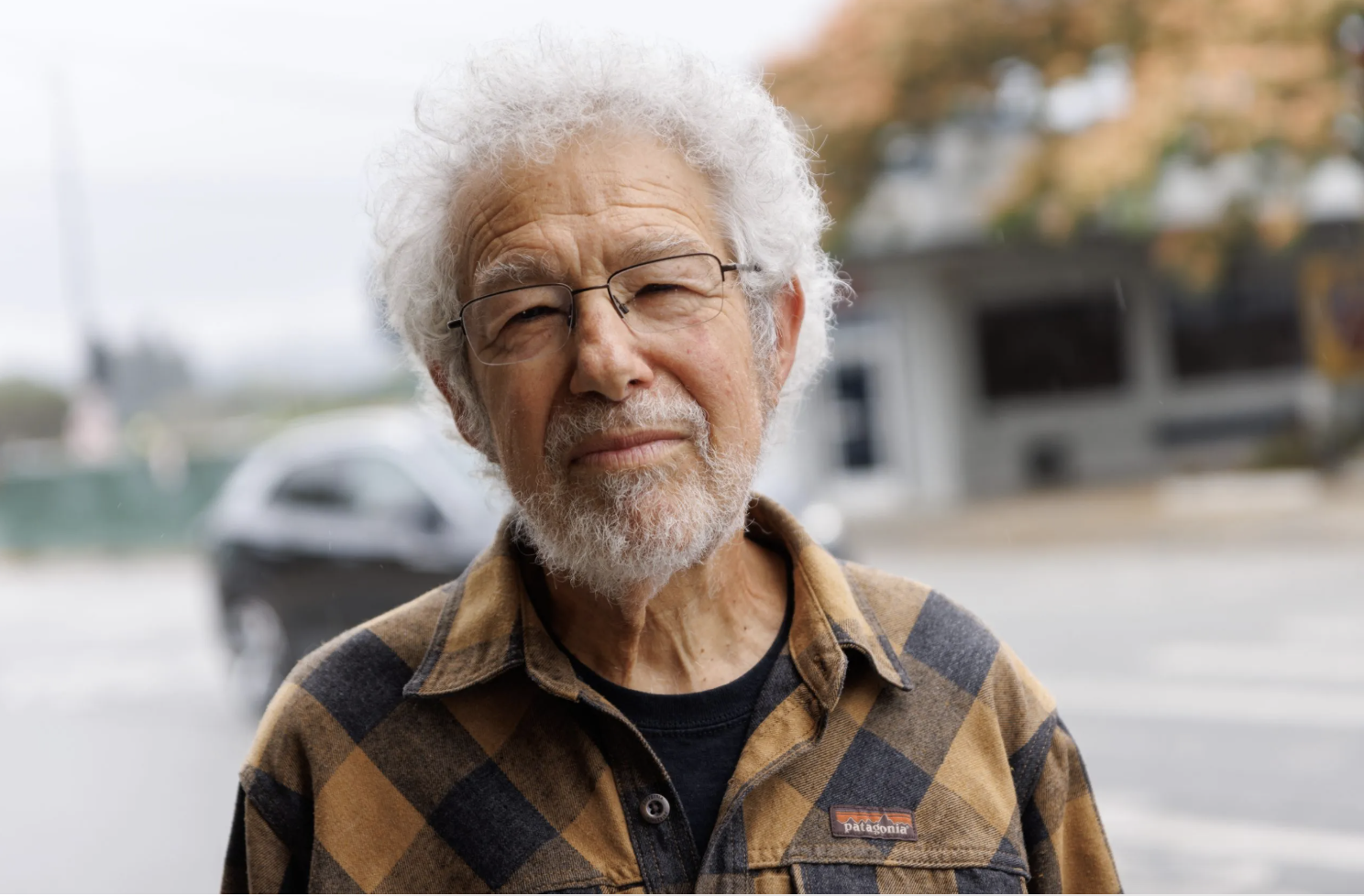
The History of Consciousness department mourns the untimely passing of alumnus Mike Rotkin. Mike was an influential and treasured member of the city of Santa Cruz (serving as mayor five times and on the city council for 25 years), and a long-standing figure in the local activist community. Read more about his life and work in this article from Lookout Santa Cruz.
Remembering Corey Capers
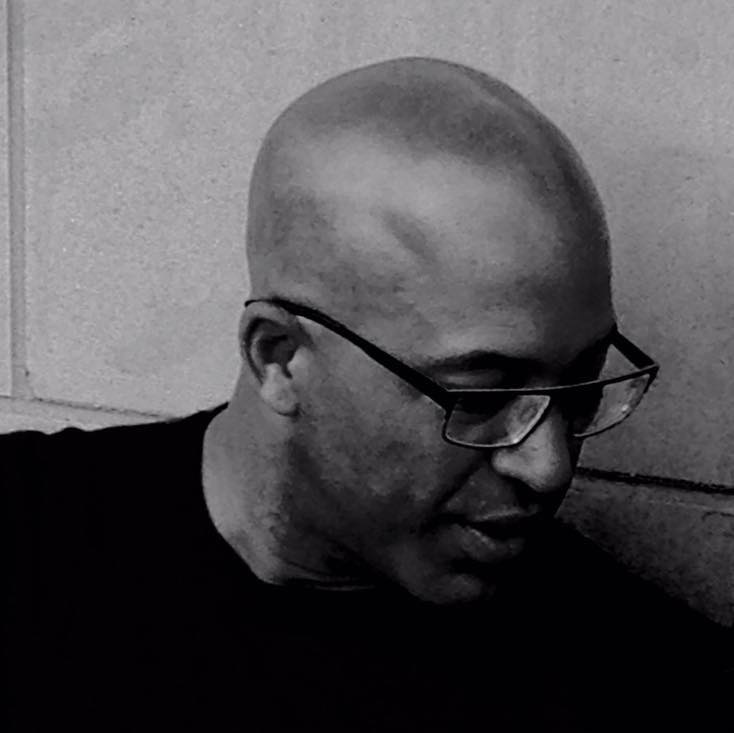
"I am deeply sad to announce that Corey Capers, History of Consciousness Alum (1997-2004) passed away on May 6, 2024. I was a member of his PhD committee and learned enormously from him, both about difficult practices of intellectual and moral integrity and about popular culture, satire, race, political broadsides, caricatures, and ‘publicity’ in the early American Republic. Corey was a dedicated historian, addicted to evidence and informed interpretation,. He had the courage to go against the grain of our own cherished accounts of the history of race and culture in America. One of his titles in a professional talk in 2012 gives a taste of his approach: “Following Bobalition: Toward a Carnivalesque History of Print and Power in the early American Republic.” In 2021 he wrote, "The figure of the Black as only slave, socially dead and non-human is specious on its face. Even if Africans were “conscripts of modernity” (as David Scott has argued) Black lives were then and still are productive and constitutive members of modernity in ways other than as slaves and fetishes."
Corey was a postdoctoral fellow at Cornell in 2005. He was awarded the Silver Circle Award for Excellence in Teaching at the University of Illinois Chicago campus in 2013. After a professional break for the birth of his daughter and parenting, he was a faculty member in American History and Black Studies at Texas State University. He had a completed draft for a book titled Public Blackness, Printed Bodies: Black Liberty and Afro-fetishism in Early Republic Prints (under contract with the University of Pennsylvania Press). His Texas State website summarizes that Capers tracked "the dialogue between early Black abolitionists and their racist antagonists as evidenced in what he calls the 'print traffic in free black bodies' located in early republic newspapers, pamphlets, and broadsides. His work shows how newly freed Africans used institution-building, print publicity and religious discipline as a means of engaging and changing the parameters of the public in the early national north.” Corey was active in the larger community, for example serving a program coordinator for Youth Violence Prevention for the Mental Health Association of Greater Dallas.
Struggling with cancer since 2017, he focused the last period of his life on caring for his young daughter Toni, his new partner, and himself. He remained a vibrant intellectual interlocutor and a man of great humor and integrity. His Facebook posts were full of struggle, humor, ideas, and appreciation of living.
In mourning,
Donna Haraway"
Remembering Darshan Elena Campos
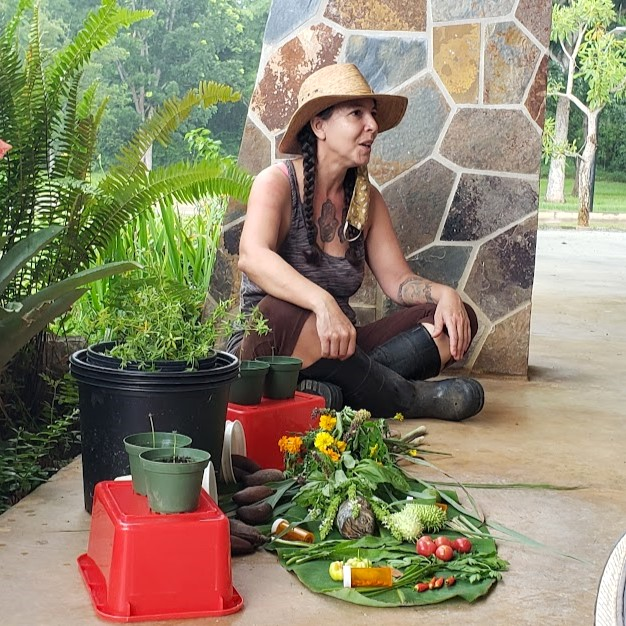
Darshan Elena Campos in 2021 taken by Adriana Garriga-López
"Darshan Elena Campos, Ph.D (1975 - 2024) passed on from this life and plane of existence the way they lived it; on her own terms. A brilliant, charismatic, and beautiful person, Darshan lived with their heart on their sleeve and exuded a charming combination of child-like optimism mixed with profound intellectual and political commitments to feminism and nuanced approaches to decolonization. With the intention of healing herself and others, Darshan often shared her experiences of deep personal suffering, as well as of surviving historical trauma that she worked assiduously to address. Of her early life, Darshan wrote that she was "raised on welfare and flea market capitalism by her single Askenazi mother in a small coastal community on ancestral Awaswas territory in a town now named Santa Cruz, California. Her father, a Boricua born on ancestral Lenape territory, [was] missing, homeless, or incarcerated for most of her life — and his own.” Darshan carried deep wounds and fought battles that ultimately proved too much to bear. While I am so very sad for this unfolding, I will abide by her request that we respect her choice to give herself over to the sea. She rests now in the arms of Yemayá.
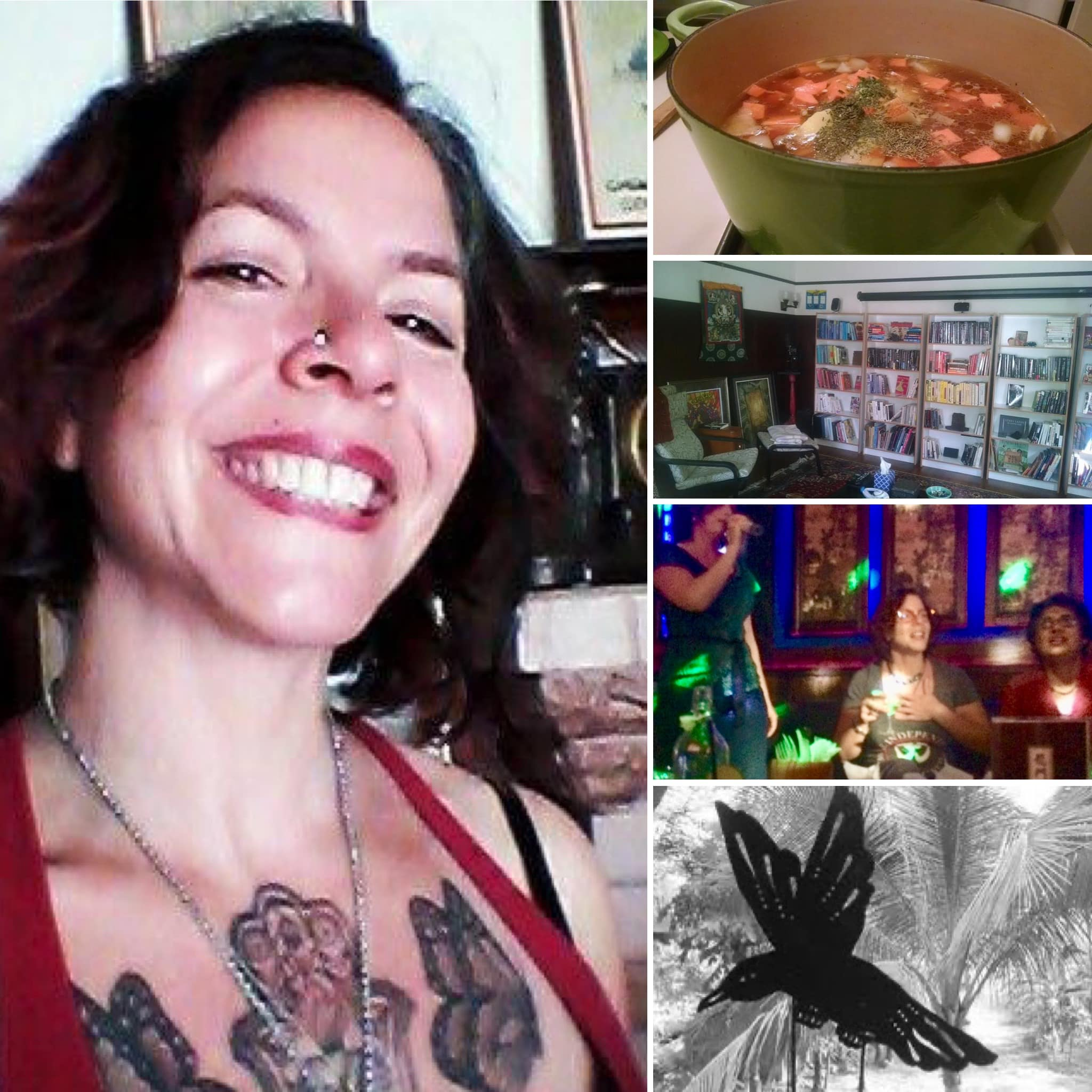
Images courtesy of Sabrina Kwist
Throughout their adult life, Darshan dedicated herself to developing anti-colonial feminist cuir knowledges and practices, was drawn to innovative ideas for creating social justice, and treated her friendships as sources for inspiration, wonderment, solidarity, solace, and affirmation. And as much as Darshan drew from those connections, she gave even more in return. In Puerto Rico, where they rematriated in 2018, she created a seed bank project called "We Are Antillean Seeds" (Somos Semillas Antillanas) and tended at least six vegetable and fruit gardens in their community belonging to neighbors in the housing project in Cabo Rojo where she lived until her passing. Darshan gave so much of herself that news of their death opened a torrent of grief in Cabo Rojo partly expressed online. From local shop owners, organizers, writers, and academic colleagues to a woman who recalled how Darshan said she liked to hear her sing, many have remarked on their fierce intellect, generous heart, and greatness of spirit. The breadth of her life’s impact is a testament to their generosity and to the humanist integrity of her interactions with everyone they met. Their absence will be sorely felt by many friends, students, and mentors in Puerto Rico, California, and all over Turtle Island who recall her beauty, courage, creativity, and loving kindness.
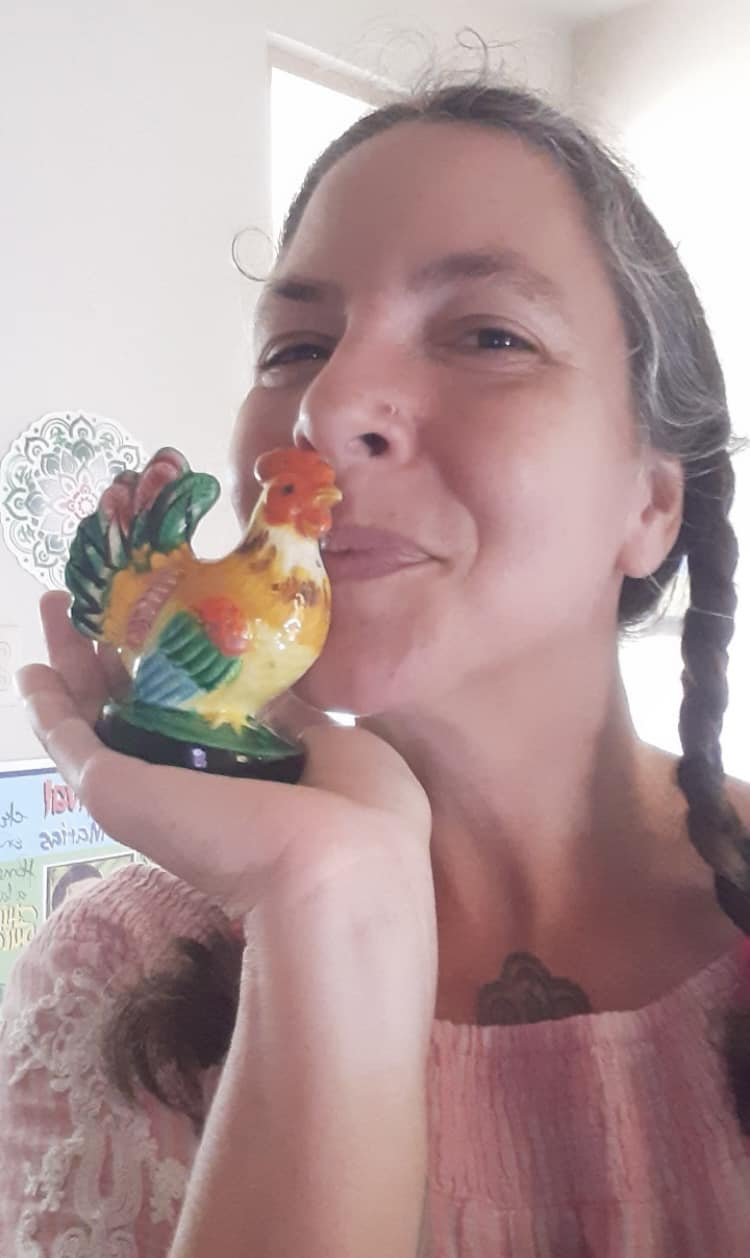
Darshan in Cabo Rojo
In the future, Darshan’s daring ideas about decolonial business models and reparations for Puerto Rico may be lauded as the first steps towards a material vision of what a reparative economic model that addresses “all dimensions of ecological resilience as central to actualizing an organization/product/brand” might look like. Her vision of food justice, reparations, and afro-indigenous rematriation is a seed that remains and will grow. The legacy of her words, wisdom, and works will endure. May their memory be a decolonial blessing to all who knew her and inspire us to keep dreaming of a better future and to continue fighting for our collective liberation. Any. plans for a memorial have not yet been announced."
- Adriana Garriga-Lopez, Ph.D. Associate Professor of Anthropology and Comparative Studies,
Florida Atlantic University
Remembering Catriona Rueda Esquibel
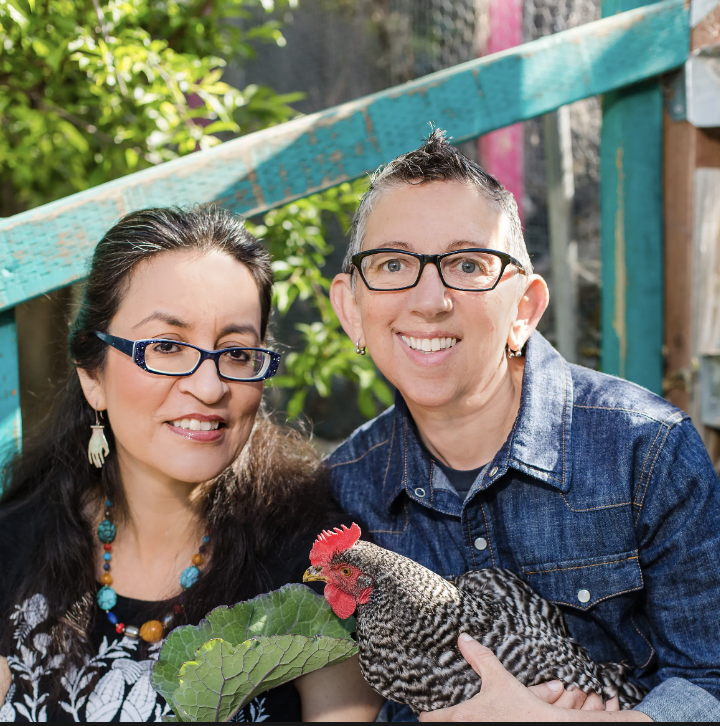
Catriona Rueda Esquibel (left) with partner Luz Calvo (right)
The History of Consciousness department mourns the untimely passing of alumnus Catriona Rueda Esquibel. Esquibel graduated from UC Santa Cruz with a PhD in History of Consciousness in 1999, and was a longstaying source of inspiration at SFSU in the College of Ethnic Studies. She and her partner, Luz Calvo, who also graduated from the doctorate in HistCon, lived together in Oakland.
Esquibel was much adored by her peers in the History of Consciousness department and at San Francisco State University. Read more about her life and work in this article from Golden Gate Xpress: Bilingual Student Publication of SFSU.
Remembering John McFadden
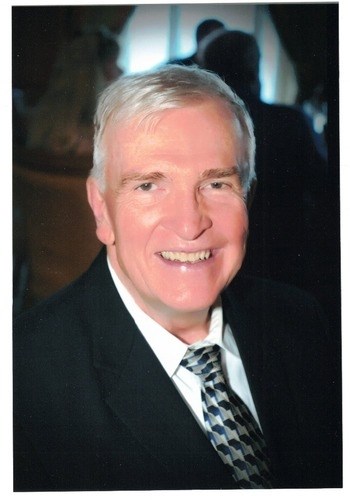 “John Patrick McFadden, 85, passed away at home in Sacramento, California, surrounded by his family, on September 12, 2022.
“John Patrick McFadden, 85, passed away at home in Sacramento, California, surrounded by his family, on September 12, 2022.
He is survived by his wife of 38 years, Karen Thomas, daughters Elena McFadden and Sara McLachlan, son, Tom McFadden (Mary Ellen), and grandchildren Rose, Riley, Julia, and Bennett. He was preceded in death by his parents, John "Mack" McFadden and Helen Whitenack McFadden, and his brother Joseph Edward McFadden.
John was born on December 21, 1936 in Martinez, California, where his father worked for Allied Oil. The family also lived in Woodburn, Oregon and Altadena, California. When his father had to stop working because of osteomyelitis, his mother supported the family as a registered nurse.
For twelve years John attended the Roman Catholic Junior Seminary, Queen of Angels Seminary, and St. John's College in Camarillo, forming many lifelong friendships. He was ordained a Roman Catholic Priest in l963 and served parishes in Claremont and Pasadena, California and in Cuernavaca, Mexico.
John took a leave of absence from the priesthood in 1967 and married Georgia Lyga in l968. That year he began a PhD program in the History of Consciousness at University of California at Santa Cruz. After completing his coursework in 1970, John and Georgia went to work with the United FarmWorkers inDelano, California. Elena Odile was born in 1972 and Sara Karen in l973.
In 1974 the family moved to Sacramento where John began teaching in the Education Department at California State University Sacramento. He received his PhD from UCSC in December 1975.
In July 1979, after the Sandinista Revolution, John took a leave of absence from CSUS to move to Nicaragua for two years to be part of the teacher training program for the National Literacy Campaign. He was accompanied by Georgia, Elena, and Sara.
In August, l981, the McFaddens returned to Sacramento and John continued teaching teachers at CSUS in the Department of Bilingual/Multicultural Education until his retirement in 2005.
John's second marriage to Karen Thomas took place in September, l984. Their son Tom was born in l986.
John was an intrepid traveler and went with friends and family members to every continent except Antarctica. His journeys included trips to Peru, India, France, Bali, China, Singapore, Laos, Cambodia, Norway, Chile, South Africa, Spain, Portugal, and Ireland.”
Remembering Teresia Teaiwa
By Jim Clifford, Professor Emeritus History of Conciousness
Teresia Teaiwa, History of Consciousness PhD 2001, passed away on 21 March 2017. The cause was pancreatic cancer. Her untimely loss has devastated many friends and admirers. An enormous outpouring of love and support, from throughout Oceania and beyond, accompanied her final weeks. Her husband, Sean Mallon, and two sons, Manoa and Vaitoa, were with her in her last days.
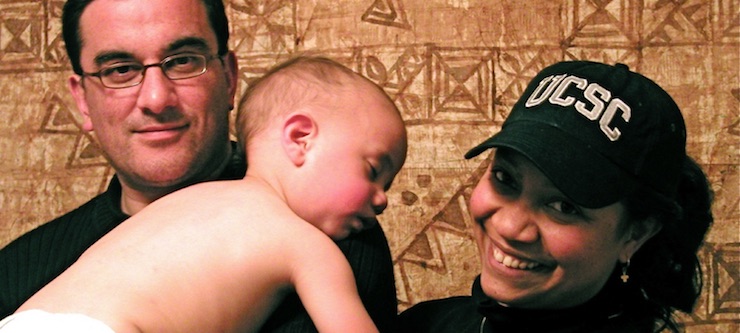 Sean, Vaitoa, Teresia: Wellington, 2003.
Sean, Vaitoa, Teresia: Wellington, 2003.
Teresia was a prominent educator, academic innovator, and poet. .She directed the Va‘aomanū Pasifika unit (Pacific Studies and Samoan Studies) at Victoria University in Wellington, Aotearoa-New Zealand, the first and only program to offer a Ph.D. in Pacific Studies. (In this path-breaking project she has collaborated closely with April Henderson, History of Consciousness PhD 2007.)
Born in Honolulu and raised in Fiji, Teresia taught at the University of the South Pacific in Suva before moving to Wellington. Deeply concerned with Fijian culture and politics after a series of military coups, she strongly rejected all forms of ethnic absolutism. Her view of the world reflected a Pacific-centered internationalism. Her father is I-Kiribati (displaced to Fiji from the mine-devastated phosphate island of Banaba), and her mother African American. An understanding of the simultaneously rooted and mobile nature of islander histories and attachments permeated her scholarship, teaching, and creative writing.
An anti-nuclear activist, defender of West Papuan independence, and a critic of militarism, Teresia sustained many alliances and was a widely influential voice. She received prestigious academic fellowships and multiple teaching awards. Her poetry is widely published and appreciated.
A compendium of open access works can be found at:
https://savageminds.org/2017/03/21/remembering-teresia-teaiwa-an-open-access-bibliography/
As a student in History of Consciousness Teresia played a central role in the diversification of feminism through the Research Cluster for the Study of Women of Color in Collaboration and Conflict. She co-edited its important publication, Enunciating our Terms, for the Center for Cultural Studies journal, Inscriptions.
Teresia’s dissertation, "Militarism, Tourism and the Native: Articulations in Oceania". rescued “the Native” from the simplifications of pastoral exoticism, nationalist apologetics, and postmodern condescension. It was an entirely original revision of the history and image of indigenous peoples in the light of experiences of travel and global entanglement. In this and subsequent writing, Teresia built on the work of Epeli Hau’ofa, reconceiving the Pacific from the inside out. The region had long been oversimplified by Western exoticisms and in more recent military and touristic projections. Teresia refigured Oceania as a dynamic space, a native “cosmopolitanism.” She explored how customary patterns of dwelling and traveling were being rearticulated in contemporary national and international contexts. Her approach to the lived “cultures of militarism and tourism” has been particularly important, probing specific personal investments and complex relations of power and reciprocity.
As chair of Teresia’s thesis committee (the other members were Angela Davis and Barbara Epstein), I learned enormously from her insights, gentle prodding, and sense of humor. Her “style” was something unique. Teresia had charisma. At conferences she could address the most difficult points with political and analytic rigor, but always with a lightness of touch and a conversational eloquence that invited discussion.
If you would like to hear her voice I recommend:
https://www.youtube.com/watch?v=lipupbIZb6U
On her extraordinary Pacific-centered teaching:
https://akoaotearoa.ac.nz/mi/node/11225
And a good sample of her irreverent, loving manner can be found at:
https://muse.jhu.edu/article/372572
For an overview of her book-in-progress, a complexly gendered analysis of the cultures of militarism:
http://intersections.anu.edu.au/issue37/teaiwa.htm
We hope that as much of this work as possible can be edited and published before long.
A couple of weeks before she died, Teresia somehow found the energy to respond to a haiku by Matsuo Basho I had sent.
Wrapping dumplings in
bamboo leaves, with one finger
she tidies her hair
“Reminds me of the way my nurses balance blood taking with one hand, sometimes one finger…!”
Everyone who was touched by Teresia’s attentiveness, brilliance and grace will miss her immeasurably.
Remembering Nathalie Magnan
HistCon mourns the death of former graduate student, Nathalie Magnan,1956-2016. Working with Teresa deLauretis, Donna Haraway, Helene Moglen, Jim Clifford, and others, Nathalie studied in Hist Con from 1985 to 1990. She forged and maintained strong ties with fellow HistCon students over many years. Before coming to HistCon, Nathalie already had an impressive corpus of video productions and a MFA from the Rochester Visual Studies Workshop of SUNY Buffalo. Nathalie taught at Paris VIII, l’Ecole supérieure des beaux arts de Dijon, and finally l’École nationale supérieure d’art de Bourges. She was an innovator in radical participatory visual media; a formative thinker in cyber-feminism; a leader in queer, feminist, and lesbian theory; a feisty and beloved dyke; and an inspiration for young media activists in anglophone and francophone worlds. She worked with DeeDee Hallek in Paper Tiger Television, helped found both the Los Angeles Gay and Lesbian Film Festival and the Gay and Lesbian Film Festival in Paris, and was an innovator in digital queer media. Pleasure, play, justice, and power infused her work. She was passionately opposed to anti-Muslim racism in the 18th arrondissement, where she lived for several years. Nathalie assured the translation and publication in France of Donna Haraway, Manifeste cyborg et autre essais, science-fiction-féminisme Paris, éditions Exils (2007). Nathalie returned to Santa Cruz for the HistCon reunion in June 2011, where the group photo below was taken. Nathalie’s last public work was at "Blackmarket for Useful Knowledge and Non-Knowledge No. 18: On Becoming Earthlings” in Paris at the Musée de l’Homme in November 2015. In recent times Nathalie lived in Marseille with her partner of many years, Reine Prat, who along with Catherine Lord, was with her when she died on October 15, 2016.
Remembering Marcos Becquer
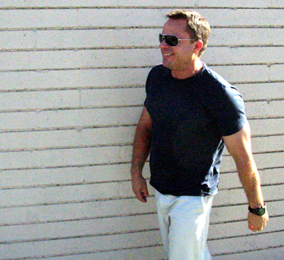 On May 16, 2011, History of Consciousness graduate student Marcos Becquer died in Boynton Beach, Florida. Born in Jatibonico, Cuba, on October 26, 1965, Marcos was a very special member of the HistCon world, and he is deeply mourned by friends, colleagues, and family. Marcos had a vivid warmth, generous presence, astute mind, and layered sense of humor—online, in person, and in writing. His extraordinary intellectual talent was evident in nuanced scholarship and superb writing in film and visual studies, performance theory, theories of sexuality, philosophy, and critical cultural studies across categories of difference. Coming to History of Consciousness in 2003, Marcos moved to Miami in 2008 to continue his doctoral studies in the midst of the demands of making a living in destructive economic, social, and corporeal times. In Miami he was also close to family, especially his sister Marci Ramos, who supported him in every way. In losing Marcos, we mourn a vital person with a rare intelligence; he risked asking questions close to the heart and rooted in the marrow of the problems of living and dying well in contemporary worlds.
On May 16, 2011, History of Consciousness graduate student Marcos Becquer died in Boynton Beach, Florida. Born in Jatibonico, Cuba, on October 26, 1965, Marcos was a very special member of the HistCon world, and he is deeply mourned by friends, colleagues, and family. Marcos had a vivid warmth, generous presence, astute mind, and layered sense of humor—online, in person, and in writing. His extraordinary intellectual talent was evident in nuanced scholarship and superb writing in film and visual studies, performance theory, theories of sexuality, philosophy, and critical cultural studies across categories of difference. Coming to History of Consciousness in 2003, Marcos moved to Miami in 2008 to continue his doctoral studies in the midst of the demands of making a living in destructive economic, social, and corporeal times. In Miami he was also close to family, especially his sister Marci Ramos, who supported him in every way. In losing Marcos, we mourn a vital person with a rare intelligence; he risked asking questions close to the heart and rooted in the marrow of the problems of living and dying well in contemporary worlds.
Earning a MA in Cinema Studies from NYU, before coming to HistCon Marcos published crucial essays on urban and secular Latino and black gay culture and performance, including "Snap!thology and other Discursive Practices in Tongues Untied," Wide Angle: A Quarterly Journal of Film History, Theory & Criticism 13:2 (1991), 6-17; “‘Docudrag’: or ‘Realness’ as Documentary Strategy,” co-authored with Alisa LeBow, in The Ethnic Eye, Chon Noriega and Ana Lopez, eds. (University of Minnesota Press, 1996); and “Elements of Vogue,” coauthored with Jose Gatti, Third Text n16/17, Autumn/Winter 1991, 65-81. He examined how vogueing and snapping, foregrounded in Marlon Riggs’ Tongues Untied, could confront what Marcos named the “regime of sadness” that exiled queers of color from codes of discourse and representation, including in both the black communities and white gay communities. His writing was taken up and used, for example in Robert McRuer’s essay on “Queer Locations, Queer Transformations,” in South to a New Place: Region, Literature and Culture, Suzanne Whitmore Jones and Sharon Monteith (Louisiana State University Press, 2002). In Disidentifications Queers of Color and the Performance of Politics (University of Minnesota Press, 1999), José Esteban Munoz gratefully noted Marcos’ “intellectual force and brilliance.” Writing for Marcos when he applied to HistCon in 2002, Lee Edelman described a “voracious appetite for important texts and a stunning degree of originality.” Edelman went on: “This is no diamond in the rough; this is a dazzling mind ready to be guided further into the discipline to which he is dedicated.” Edelman described the unpretentious, generous friend, student, and teacher who brought rigor and empathy in equal measure to his community and his work. Marcos gave these gifts to HistCon in ways that touched both faculty and students deeply.
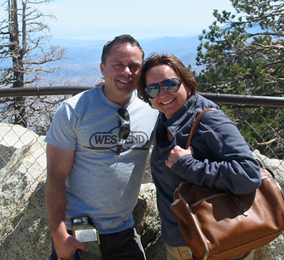 In HistCon, Marcos developed new approaches and materials, exploring the history of medicine and health in contexts of both tropical medicine and HIV/AIDS, writing on historically situated Latino artists and politics in Cuba and the U.S., and finally reaching deeply into the vexed contact and conflict zones joining animal and human being. For his thesis, he planned to draw together philosophy, animal-human studies, and cultural analysis through a sustained close reading of the American philosopher Alphonso Lingis. He emphasized Lingis’ approaches to subjectivity, experience, and history in the face of modern forms of mass killing and many-sided vulnerability and precariousness. In his approach to Lingis, Marcos turned to Husserl, Levinas, Heidegger, Lacan, Kant, and Nietzsche to think through modern encounters with mortality, subjectivity, and responsibility. Cementing my own unwavering desire to be his PhD adviser, Marcos reminded me that Lingis wrote extensively on animals well beyond his recent essay on Nietzsche’s animals: “[Lingis] has also written memorably about real life encounters with, eg., penguins and condors. His thoroughly researched essay, "Quadrille," on bowerbirds is fascinating. He lives with birds that he does not keep in cages but fly free around his domestic space… Indeed, the concept of encounter is crucial to Lingis' work. Lingis travels widely and writes vividly about his encounters, about what moves him, in those travels. It is this primary attention to lived-experience-in-relation that, in my opinion, infuses his philosophical work with freshness. This is especially evident in an extraordinary series of xenographic books like Abuses and Dangerous Emotions, where Lingis puts to work his considerable descriptive powers in ways that powerfully exceed mere theoretical argumentation and technical rhetoric … Lingis' has to be read, that is, the way he uses language must be taken into account, if one is to not only understand what he says but actually to ‘get’ him and his thought” (personal communication, October 10, 2008).
In HistCon, Marcos developed new approaches and materials, exploring the history of medicine and health in contexts of both tropical medicine and HIV/AIDS, writing on historically situated Latino artists and politics in Cuba and the U.S., and finally reaching deeply into the vexed contact and conflict zones joining animal and human being. For his thesis, he planned to draw together philosophy, animal-human studies, and cultural analysis through a sustained close reading of the American philosopher Alphonso Lingis. He emphasized Lingis’ approaches to subjectivity, experience, and history in the face of modern forms of mass killing and many-sided vulnerability and precariousness. In his approach to Lingis, Marcos turned to Husserl, Levinas, Heidegger, Lacan, Kant, and Nietzsche to think through modern encounters with mortality, subjectivity, and responsibility. Cementing my own unwavering desire to be his PhD adviser, Marcos reminded me that Lingis wrote extensively on animals well beyond his recent essay on Nietzsche’s animals: “[Lingis] has also written memorably about real life encounters with, eg., penguins and condors. His thoroughly researched essay, "Quadrille," on bowerbirds is fascinating. He lives with birds that he does not keep in cages but fly free around his domestic space… Indeed, the concept of encounter is crucial to Lingis' work. Lingis travels widely and writes vividly about his encounters, about what moves him, in those travels. It is this primary attention to lived-experience-in-relation that, in my opinion, infuses his philosophical work with freshness. This is especially evident in an extraordinary series of xenographic books like Abuses and Dangerous Emotions, where Lingis puts to work his considerable descriptive powers in ways that powerfully exceed mere theoretical argumentation and technical rhetoric … Lingis' has to be read, that is, the way he uses language must be taken into account, if one is to not only understand what he says but actually to ‘get’ him and his thought” (personal communication, October 10, 2008).
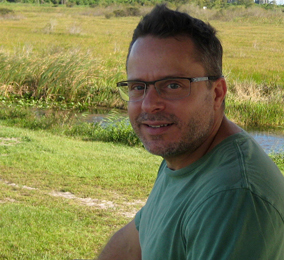 Marcos’ notes show an intense and thorough engagement with the large body of writing by Lingis in order to elucidate core questions about art, species, finitude, temporality, wonder, and ethics. Marcos’ close readings richly embody the intellectual virtues he cultivated and admired—patience, critical acumen, and restraint in the service of genuinely reaching out to what moves us toward something we do not yet know but urgently need. That he was not able to finish this work is a loss to all of us, but a small thing compared to having known the living presence of this man of talent, courage, vulnerability, and accomplishment.
Marcos’ notes show an intense and thorough engagement with the large body of writing by Lingis in order to elucidate core questions about art, species, finitude, temporality, wonder, and ethics. Marcos’ close readings richly embody the intellectual virtues he cultivated and admired—patience, critical acumen, and restraint in the service of genuinely reaching out to what moves us toward something we do not yet know but urgently need. That he was not able to finish this work is a loss to all of us, but a small thing compared to having known the living presence of this man of talent, courage, vulnerability, and accomplishment.
Donna Haraway, May 24, 2011
 Sean, Vaitoa, Teresia: Wellington, 2003.
Sean, Vaitoa, Teresia: Wellington, 2003.






 On May 16, 2011, History of Consciousness graduate student Marcos Becquer died in Boynton Beach, Florida. Born in Jatibonico, Cuba, on October 26, 1965, Marcos was a very special member of the HistCon world, and he is deeply mourned by friends, colleagues, and family. Marcos had a vivid warmth, generous presence, astute mind, and layered sense of humor—online, in person, and in writing. His extraordinary intellectual talent was evident in nuanced scholarship and superb writing in film and visual studies, performance theory, theories of sexuality, philosophy, and critical cultural studies across categories of difference. Coming to History of Consciousness in 2003, Marcos moved to Miami in 2008 to continue his doctoral studies in the midst of the demands of making a living in destructive economic, social, and corporeal times. In Miami he was also close to family, especially his sister Marci Ramos, who supported him in every way. In losing Marcos, we mourn a vital person with a rare intelligence; he risked asking questions close to the heart and rooted in the marrow of the problems of living and dying well in contemporary worlds.
On May 16, 2011, History of Consciousness graduate student Marcos Becquer died in Boynton Beach, Florida. Born in Jatibonico, Cuba, on October 26, 1965, Marcos was a very special member of the HistCon world, and he is deeply mourned by friends, colleagues, and family. Marcos had a vivid warmth, generous presence, astute mind, and layered sense of humor—online, in person, and in writing. His extraordinary intellectual talent was evident in nuanced scholarship and superb writing in film and visual studies, performance theory, theories of sexuality, philosophy, and critical cultural studies across categories of difference. Coming to History of Consciousness in 2003, Marcos moved to Miami in 2008 to continue his doctoral studies in the midst of the demands of making a living in destructive economic, social, and corporeal times. In Miami he was also close to family, especially his sister Marci Ramos, who supported him in every way. In losing Marcos, we mourn a vital person with a rare intelligence; he risked asking questions close to the heart and rooted in the marrow of the problems of living and dying well in contemporary worlds. In HistCon, Marcos developed new approaches and materials, exploring the history of medicine and health in contexts of both tropical medicine and HIV/AIDS, writing on historically situated Latino artists and politics in Cuba and the U.S., and finally reaching deeply into the vexed contact and conflict zones joining animal and human being. For his thesis, he planned to draw together philosophy, animal-human studies, and cultural analysis through a sustained close reading of the American philosopher Alphonso Lingis. He emphasized Lingis’ approaches to subjectivity, experience, and history in the face of modern forms of mass killing and many-sided vulnerability and precariousness. In his approach to Lingis, Marcos turned to Husserl, Levinas, Heidegger, Lacan, Kant, and Nietzsche to think through modern encounters with mortality, subjectivity, and responsibility. Cementing my own unwavering desire to be his PhD adviser, Marcos reminded me that Lingis wrote extensively on animals well beyond his recent essay on Nietzsche’s animals: “[Lingis] has also written memorably about real life encounters with, eg., penguins and condors. His thoroughly researched essay, "Quadrille," on bowerbirds is fascinating. He lives with birds that he does not keep in cages but fly free around his domestic space… Indeed, the concept of encounter is crucial to Lingis' work. Lingis travels widely and writes vividly about his encounters, about what moves him, in those travels. It is this primary attention to lived-experience-in-relation that, in my opinion, infuses his philosophical work with freshness. This is especially evident in an extraordinary series of xenographic books like Abuses and Dangerous Emotions, where Lingis puts to work his considerable descriptive powers in ways that powerfully exceed mere theoretical argumentation and technical rhetoric … Lingis' has to be read, that is, the way he uses language must be taken into account, if one is to not only understand what he says but actually to ‘get’ him and his thought” (personal communication, October 10, 2008).
In HistCon, Marcos developed new approaches and materials, exploring the history of medicine and health in contexts of both tropical medicine and HIV/AIDS, writing on historically situated Latino artists and politics in Cuba and the U.S., and finally reaching deeply into the vexed contact and conflict zones joining animal and human being. For his thesis, he planned to draw together philosophy, animal-human studies, and cultural analysis through a sustained close reading of the American philosopher Alphonso Lingis. He emphasized Lingis’ approaches to subjectivity, experience, and history in the face of modern forms of mass killing and many-sided vulnerability and precariousness. In his approach to Lingis, Marcos turned to Husserl, Levinas, Heidegger, Lacan, Kant, and Nietzsche to think through modern encounters with mortality, subjectivity, and responsibility. Cementing my own unwavering desire to be his PhD adviser, Marcos reminded me that Lingis wrote extensively on animals well beyond his recent essay on Nietzsche’s animals: “[Lingis] has also written memorably about real life encounters with, eg., penguins and condors. His thoroughly researched essay, "Quadrille," on bowerbirds is fascinating. He lives with birds that he does not keep in cages but fly free around his domestic space… Indeed, the concept of encounter is crucial to Lingis' work. Lingis travels widely and writes vividly about his encounters, about what moves him, in those travels. It is this primary attention to lived-experience-in-relation that, in my opinion, infuses his philosophical work with freshness. This is especially evident in an extraordinary series of xenographic books like Abuses and Dangerous Emotions, where Lingis puts to work his considerable descriptive powers in ways that powerfully exceed mere theoretical argumentation and technical rhetoric … Lingis' has to be read, that is, the way he uses language must be taken into account, if one is to not only understand what he says but actually to ‘get’ him and his thought” (personal communication, October 10, 2008). Marcos’ notes show an intense and thorough engagement with the large body of writing by Lingis in order to elucidate core questions about art, species, finitude, temporality, wonder, and ethics. Marcos’ close readings richly embody the intellectual virtues he cultivated and admired—patience, critical acumen, and restraint in the service of genuinely reaching out to what moves us toward something we do not yet know but urgently need. That he was not able to finish this work is a loss to all of us, but a small thing compared to having known the living presence of this man of talent, courage, vulnerability, and accomplishment.
Marcos’ notes show an intense and thorough engagement with the large body of writing by Lingis in order to elucidate core questions about art, species, finitude, temporality, wonder, and ethics. Marcos’ close readings richly embody the intellectual virtues he cultivated and admired—patience, critical acumen, and restraint in the service of genuinely reaching out to what moves us toward something we do not yet know but urgently need. That he was not able to finish this work is a loss to all of us, but a small thing compared to having known the living presence of this man of talent, courage, vulnerability, and accomplishment.